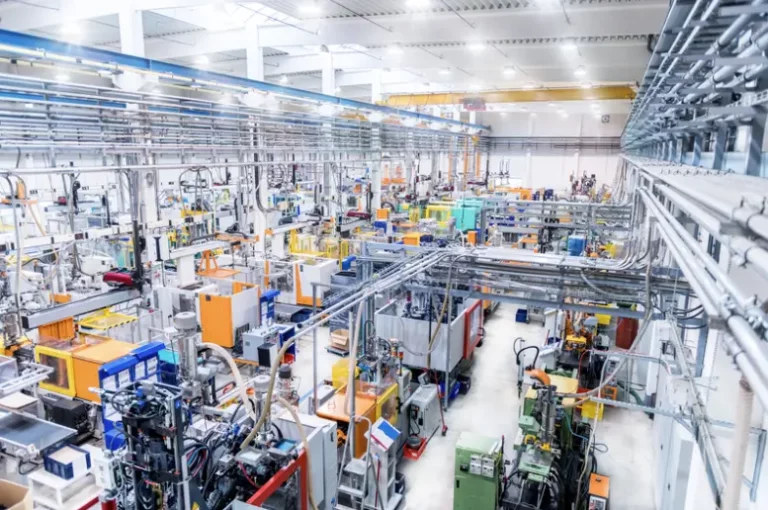A Deep Dive into Enhancing Efficiency and Innovation
Introduction: The Manufacturing Revolution with AI
In the manufacturing industry, the integration of Artificial Intelligence (AI) marks a significant shift towards smarter production processes, predictive maintenance, and supply chain optimization. This transition is not just about adopting new technology; it’s about reimagining how manufacturing operates, enhancing efficiency, reducing costs, and fostering innovation. This article delves into the intricacies of integrating AI into manufacturing, offering a detailed, value-driven guide for businesses ready to embark on this transformative journey.
Understanding AI’s Role in Modern Manufacturing
AI in manufacturing, often referred to as smart manufacturing or Industry 4.0, involves the use of machine learning algorithms, data analytics, and automation technologies to improve various aspects of the manufacturing process. Key areas where AI can make a significant impact include:
- Predictive Maintenance: Using AI to predict equipment failures before they occur, thus reducing downtime and maintenance costs.
- Quality Control: Implementing AI-driven systems to monitor and ensure product quality, reducing waste and rework.
- Supply Chain Optimization: Leveraging AI to enhance supply chain efficiency, from inventory management to logistics.
- Production Planning: Utilizing AI for more accurate and efficient production scheduling to meet demand without overproduction.
Detailed Steps for AI Integration in Manufacturing
- Initial Assessment and Strategy Formation:
- Conduct a thorough analysis of current manufacturing processes, identify pain points, and determine where AI can add the most value.
- Develop a strategic plan for AI integration, including goals, timelines, and key performance indicators (KPIs).
- Data Infrastructure and Management:
- Ensure robust data collection systems are in place, capturing relevant data from production lines, machinery, and supply chain operations.
- Implement data management practices that ensure data accuracy, accessibility, and security, laying the groundwork for effective AI analysis.
- Technology Selection and Customization:
- Choose AI technologies and tools that align with the specific needs of the manufacturing processes.
- Work with AI providers or in-house teams to customize solutions, ensuring they integrate seamlessly with existing systems.
- Pilot Projects and Scaling:
- Start with pilot projects in targeted areas of the manufacturing process to test and refine AI solutions.
- Evaluate the success of these pilots based on predefined KPIs, then scale AI integration across other areas, gradually expanding its application.
- Workforce Training and Adaptation:
- Develop training programs to upskill workers, enabling them to effectively interact with new AI-driven processes and technologies.
- Foster a culture of continuous learning and adaptation, ensuring that the workforce is equipped to work alongside AI systems.
- Continuous Monitoring and Optimization:
- Establish ongoing monitoring mechanisms to track the performance of AI systems, ensuring they deliver the expected value.
- Continuously refine and optimize AI solutions based on performance data, feedback from the workforce, and evolving industry trends.
Best Practices for Successful AI Integration in Manufacturing

- Align AI Goals with Business Objectives: Ensure that AI initiatives are closely aligned with the broader business goals and contribute to tangible business outcomes.
- Emphasize Collaboration and Communication: Foster collaboration between AI experts, IT staff, and operational teams to ensure successful integration and adoption of AI technologies.
- Invest in Data Quality and Integration: Recognize the importance of high-quality, integrated data as the foundation for effective AI applications in manufacturing.
- Adopt a Phased Approach: Gradually implement AI across different areas of the manufacturing process, allowing for adjustments and learning at each stage.
- Prioritize Security and Ethical Considerations: Be vigilant about the security and ethical implications of AI, including data privacy, employee impact, and decision transparency.
Conclusion: The Future of Manufacturing with AI Integration

Integrating AI into manufacturing processes is a journey that offers immense potential to revolutionize the industry. It promises not only increased operational efficiency and cost savings but also a new era of innovation and competitive advantage. By following a structured approach to AI integration and adhering to best practices, manufacturers can navigate the complexities of this transition and achieve sustainable success in the era of Industry 4.0.


